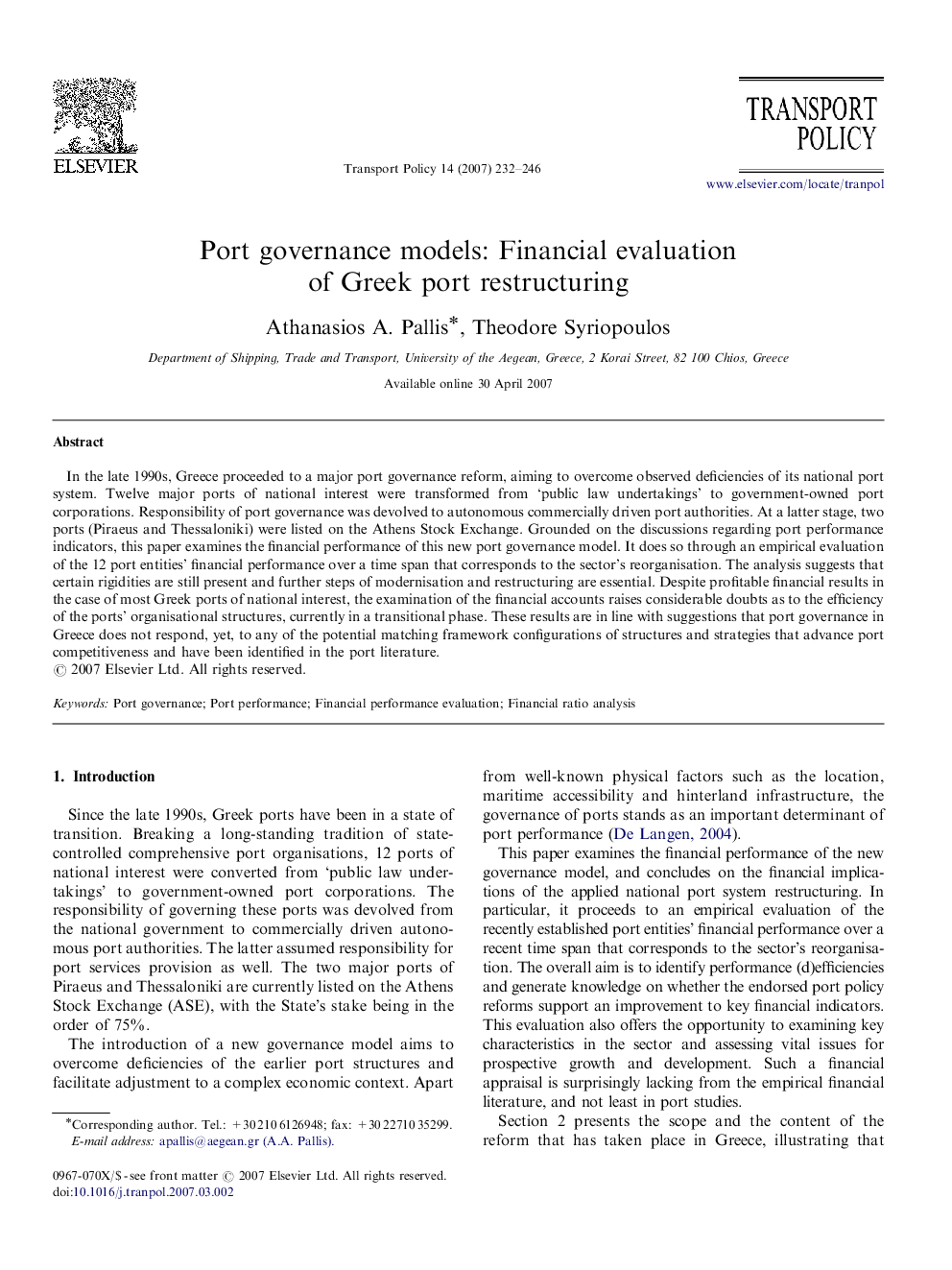| Article ID | Journal | Published Year | Pages | File Type |
|---|---|---|---|---|
| 1065227 | Transport Policy | 2007 | 15 Pages |
In the late 1990s, Greece proceeded to a major port governance reform, aiming to overcome observed deficiencies of its national port system. Twelve major ports of national interest were transformed from ‘public law undertakings’ to government-owned port corporations. Responsibility of port governance was devolved to autonomous commercially driven port authorities. At a latter stage, two ports (Piraeus and Thessaloniki) were listed on the Athens Stock Exchange. Grounded on the discussions regarding port performance indicators, this paper examines the financial performance of this new port governance model. It does so through an empirical evaluation of the 12 port entities’ financial performance over a time span that corresponds to the sector's reorganisation. The analysis suggests that certain rigidities are still present and further steps of modernisation and restructuring are essential. Despite profitable financial results in the case of most Greek ports of national interest, the examination of the financial accounts raises considerable doubts as to the efficiency of the ports’ organisational structures, currently in a transitional phase. These results are in line with suggestions that port governance in Greece does not respond, yet, to any of the potential matching framework configurations of structures and strategies that advance port competitiveness and have been identified in the port literature.
